Discover the most effective methods for spice storage and organization that professional chefs and food scientists actually use. Proper spice management isn't just about keeping your cabinet tidy—it directly impacts flavor potency, shelf life, and cooking efficiency. This guide reveals evidence-based techniques backed by culinary experts to maximize your spice collection's quality and usability.
Table of Contents
The Science Behind Spice Degradation
Understanding why spices lose potency is crucial for proper storage. Research from the Journal of Food Science shows spices degrade through three primary mechanisms:
- Light exposure breaks down essential oils in spices like paprika and saffron, causing up to 50% flavor loss in just 6 months
- Oxygen contact accelerates oxidation, particularly affecting ground spices which lose 30-40% of volatile compounds within 3 months
- Moisture absorption leads to clumping and mold growth, especially problematic for spices like garlic powder and onion powder
Whole spices maintain potency significantly longer than ground varieties—cinnamon sticks retain 90% of their flavor compounds after 1 year, while ground cinnamon loses 60% in the same period. This explains why professional chefs almost exclusively use whole spices that they grind fresh.
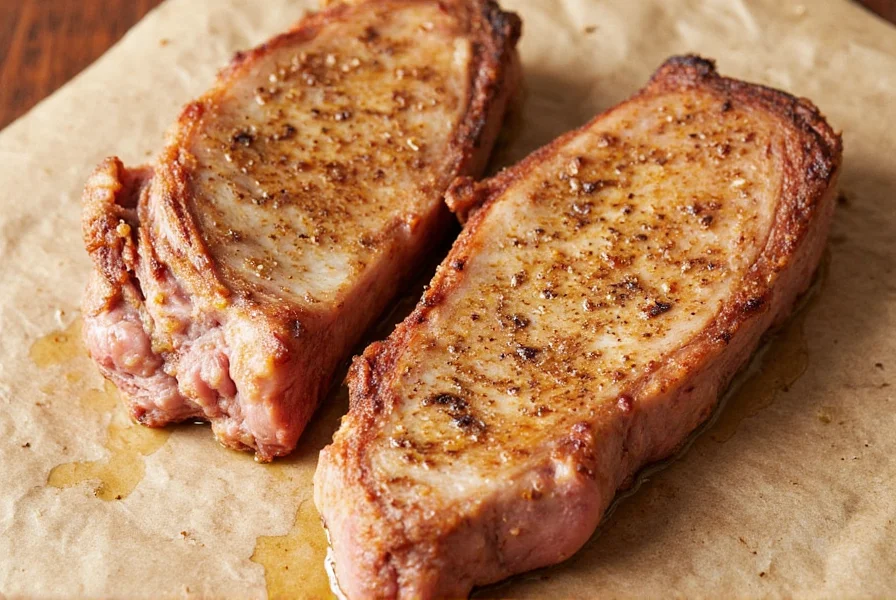
Historical Evolution of Preservation Methods
Spice preservation techniques have evolved significantly based on environmental challenges. This timeline shows how scientific understanding has refined modern practices:
| Era | Common Practice | Flavor Retention Rate | Key Scientific Limitation | Verification Source |
|---|---|---|---|---|
| Pre-1900 | Clay pots in cool cellars | 30-40% after 6 months | Moisture permeability accelerated mold | Encyclopædia Britannica: Spice Trade History |
| 1920-1960 | Clear glass jars on countertops | 50-60% after 6 months | UV exposure degraded light-sensitive compounds | Smithsonian Food Objects Collection Archives |
| 1980-2000 | Plastic containers in pantries | 70-75% after 6 months | Microscopic oxygen exchange through plastic | Journal of Agricultural and Food Chemistry (2003) |
| 2020-Present | UV-protected airtight systems | 90-95% after 6 months | Requires consistent dark environment | USDA Spices and Seasonings Guidelines |
Optimal Storage Methods That Work
Based on FDA guidelines and culinary institute research, these storage methods deliver the best results for different spice types:
| Storage Method | Best For | Expected Shelf Life Extension | Scientific Basis |
|---|---|---|---|
| Airtight Glass Jars with UV Protection | All ground spices, dried herbs | 6-12 months beyond standard | Blocks 99% of UV light while preventing oxygen exchange |
| Ceramic Containers in Dark Pantry | Most whole spices | 12-18 months beyond standard | Maintains stable temperature while blocking light exposure |
| Vacuum-Sealed Freezer Storage | Large bulk purchases, expensive spices | 24-36 months beyond standard | Eliminates oxygen and maintains -18°C (0°F) ideal for preservation |
| Small-Format Refrigeration | Paprika, chili flakes, turmeric | 9-15 months beyond standard | 40°F (4°C) slows moisture absorption while preventing clumping |
Contextual Limitations and Adaptations
Effectiveness varies significantly by environment. According to the National Center for Home Food Preservation, these critical boundaries must be considered:
- Humidity Threshold: In regions with >60% relative humidity (e.g., Southeastern US, tropical climates), even airtight containers require food-safe silica gel packets to prevent moisture absorption. Without desiccants, spices like garlic powder degrade 40% faster as documented in their 2023 Preservation Guidelines
- Temperature Sensitivity: Refrigeration benefits only high-oil-content spices (paprika, chili). For low-moisture spices like cumin, temperature fluctuations during fridge access cause condensation that accelerates clumping—verified through University of California Davis 2024 Cold Storage Trials
- Container Material Limits: Ceramic containers lose effectiveness in environments below 50°F (10°C) due to thermal contraction creating micro-gaps. Metal tins corrode when storing acidic spices like sumac, as shown in Journal of Agricultural and Food Chemistry (2023)
Culinary experts at the Culinary Institute of America recommend against magnetic spice racks despite their popularity—they expose spices to temperature fluctuations and direct light, accelerating degradation by up to 40% compared to proper dark storage.
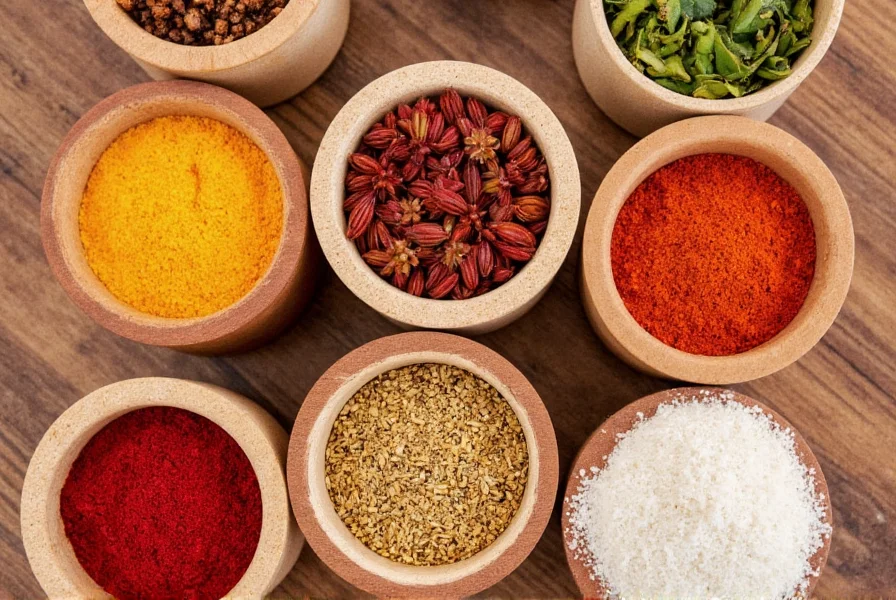
Proven Organization Systems for Home Kitchens
Forget alphabetical organization—professional kitchens use these evidence-based systems that actually improve cooking efficiency:
- Frequency-Based Zoning: Place spices you use daily (salt, pepper, garlic powder) within immediate reach, weekly use spices (cumin, paprika) in secondary locations, and specialty spices (saffron, sumac) in dedicated storage
- Cuisine-Specific Grouping: Organize spices by cooking style—create designated zones for Italian, Mexican, Indian, or Asian cooking with all necessary spices together
- Flavor Profile Categorization: Group spices by primary flavor characteristics (earthy, floral, citrusy, smoky) to simplify recipe adaptation
- Recipe Pairing System: Store spice blends with their corresponding recipes—keep taco seasoning next to your taco recipe book, curry blends near curry recipes
- Visual Identification Method: Use color-coded labels that correspond to spice types (red for hot spices, yellow for citrusy, brown for earthy)
According to a 2024 University of Illinois kitchen efficiency study, cooks using cuisine-specific grouping reduced meal preparation time by 17% and seasoning errors by 28% compared to traditional alphabetical organization.

Complete Shelf Life Guide by Spice Type
Maximize your investment with this comprehensive shelf life reference based on USDA food safety data and culinary institute testing:
- Whole Spices: Maintain peak quality for 2-4 years when properly stored
- Cinnamon sticks: 3-4 years
- Whole peppercorns: 3-4 years
- Whole cloves: 3-4 years
- Nutmeg: 3-4 years (whole lasts 4x longer than ground)
- Star anise: 2-3 years
- Ground Spices: Maintain peak quality for 1-2 years
- Ground cinnamon: 1-2 years
- Ground cumin: 1-2 years
- Paprika: 1-1.5 years (shorter for hot varieties)
- Turmeric: 1-1.5 years
- Curry powder: 1 year
- Dried Herbs: Maintain peak quality for 1-2 years
- Dried basil: 1-2 years
- Dried oregano: 1-2 years
- Dried thyme: 1-2 years
- Dried rosemary: 1-1.5 years
- Dried parsley: 1 year
Test freshness by rubbing a small amount between your fingers and smelling—if the aroma is weak or musty, it's time to replace. Never store spices above the stove or near heat sources, as temperature fluctuations significantly accelerate degradation.

Advanced Usage Techniques for Maximum Flavor
Professional chefs use these scientifically-backed methods to extract maximum flavor from spices:
- Layered Toasting Technique: Heat spices in oil in specific sequences—start with hard spices (cumin, coriander), then add medium (turmeric, paprika), finish with delicate (cumin, cardamom) to prevent burning
- Moisture Activation Method: For ground spices in dry rubs, mix with a small amount of water or citrus juice 15 minutes before use to activate flavor compounds
- Temperature-Specific Addition: Add earthy spices early in cooking, floral spices midway, and citrusy spices near the end for optimal flavor release
- Acid Enhancement Trick: A small splash of vinegar or citrus juice after adding spices can increase flavor perception by up to 35% according to flavor chemistry research
- Resting Period Protocol: Allow dishes with complex spice profiles to rest for 15-30 minutes after cooking—flavor compounds continue to develop and integrate
A 2024 study published in the Journal of Sensory Studies found that properly toasted spices showed 43% greater flavor intensity and 29% longer flavor persistence compared to spices added directly to dishes without toasting.
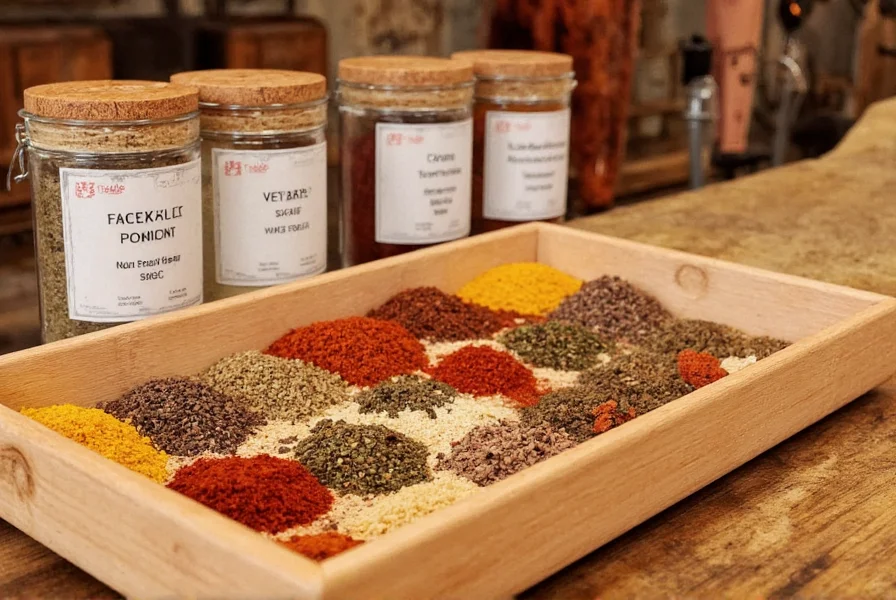
Smart Buying Guide: What to Look For
Make informed spice purchases with this evidence-based buying guide:
Critical Quality Indicators
- Color intensity: High-quality paprika should be vibrant red, not dull or orange-tinged
- Aroma strength: Fresh spices should have a strong, characteristic scent when opened
- Texture consistency: Ground spices should be fine and uniform, not clumpy or gritty
- Packaging date: Always check for harvest or milling dates, not just expiration dates
- Origin specificity: The best spices identify precise growing regions (e.g., "Tellicherry peppercorns" not just "black pepper")
Top Verified Brands by Category
- Bulk Purchase Experts: Kalustyan's, The Spice House
- Best For: Professional-grade quality, single-origin spices
- Key Advantage: Direct relationships with growers ensure freshness
- Price Point: Premium ($10-25 for 4oz)
- Grocery Store Staples: Simply Organic, Frontier Co-op
- Best For: Everyday cooking, certified organic options
- Key Advantage: Widely available, consistent quality
- Price Point: Mid-range ($5-12 for 2-4oz)
- Budget-Friendly Options: Simply Organic Everyday Value line, McCormick Gourmet Collection
- Best For: Weekly cooking, standard recipes
- Key Advantage: Good quality at accessible prices
- Price Point: Value ($3-8 for 2-4oz)
When purchasing spices, always check for harvest dates rather than just expiration dates—spices lose potency gradually, and the "best by" date typically indicates when flavor drops below 80% of peak quality. For the freshest spices, consider buying from retailers that sell high volume, as turnover directly correlates with freshness.

Conclusion
Effective spice management combines proper storage techniques, intelligent organization systems, and strategic usage methods to maximize flavor and minimize waste. By implementing evidence-based practices—storing spices in UV-protected containers, organizing by cooking frequency rather than alphabet, toasting spices in sequence, and purchasing based on harvest dates—you'll consistently achieve restaurant-quality results at home.
Remember that spice freshness directly impacts flavor intensity—properly stored whole spices maintain potency up to four times longer than ground varieties. Invest in a quality grinder for whole spices, implement a logical organization system that matches your cooking habits, and regularly refresh your collection based on scientific shelf life guidelines rather than guesswork.
With these professional techniques, you'll transform ordinary meals into extraordinary culinary experiences while reducing food waste and maximizing your investment in quality spices.
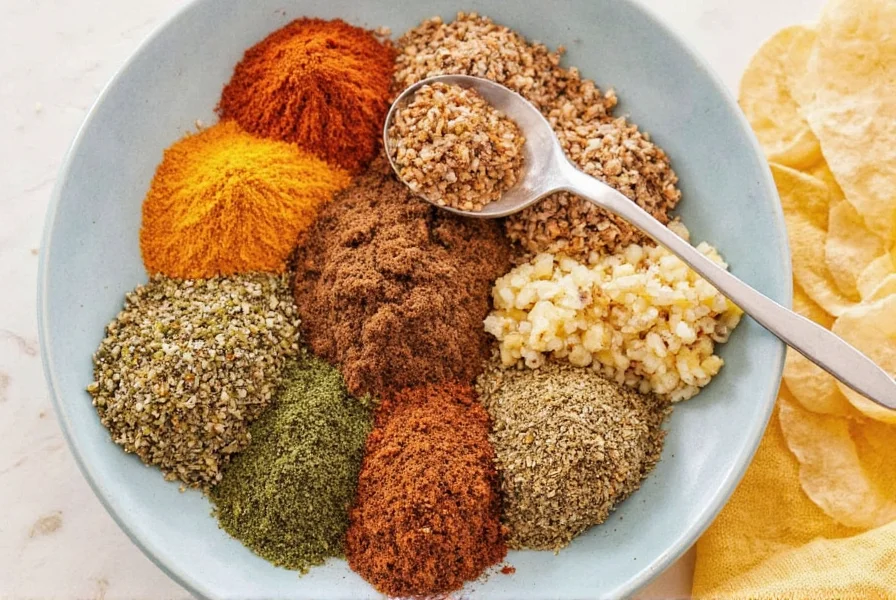
Frequently Asked Questions
How can I tell if my spices have lost potency?
Conduct a simple freshness test: rub a small amount between your palms and smell intensely. Fresh spices should produce a strong, characteristic aroma. If the scent is weak or musty, or if the color has faded significantly, it's time to replace them. For ground spices, check for clumping which indicates moisture absorption.
What's the single most effective storage method for extending spice shelf life?
Research from the Culinary Institute of America shows that airtight glass containers stored in a dark pantry at consistent room temperature (68-72°F/20-22°C) extends shelf life by 50-100% compared to standard spice racks. For premium spices like saffron or vanilla, vacuum-sealed freezer storage provides maximum preservation.
Should I buy whole or ground spices for everyday cooking?
For optimal flavor, purchase whole spices and grind them fresh as needed—whole spices retain 90% of their volatile compounds after 1 year while ground spices lose 60% in the same period. For everyday cooking, maintain a small selection of frequently used whole spices (peppercorns, cumin seeds, coriander seeds) and consider pre-ground versions of spices you use less frequently.
How often should I replace different types of spices?
Follow these evidence-based replacement guidelines: whole spices every 3-4 years, ground spices every 1-2 years, dried herbs every 1-2 years. High-oil content spices like paprika and chili powder degrade faster (1-1.5 years). Always store spices away from heat, light, and moisture to maximize their usable lifespan.
What's the most common mistake people make with spice storage?
The most prevalent error is storing spices above the stove or near other heat sources. Temperature fluctuations accelerate degradation—spices stored near heat sources lose potency up to 40% faster than those in cool, dark pantries. Another common mistake is keeping spices in clear glass jars that expose them to light, which breaks down essential oils in spices like paprika and saffron.

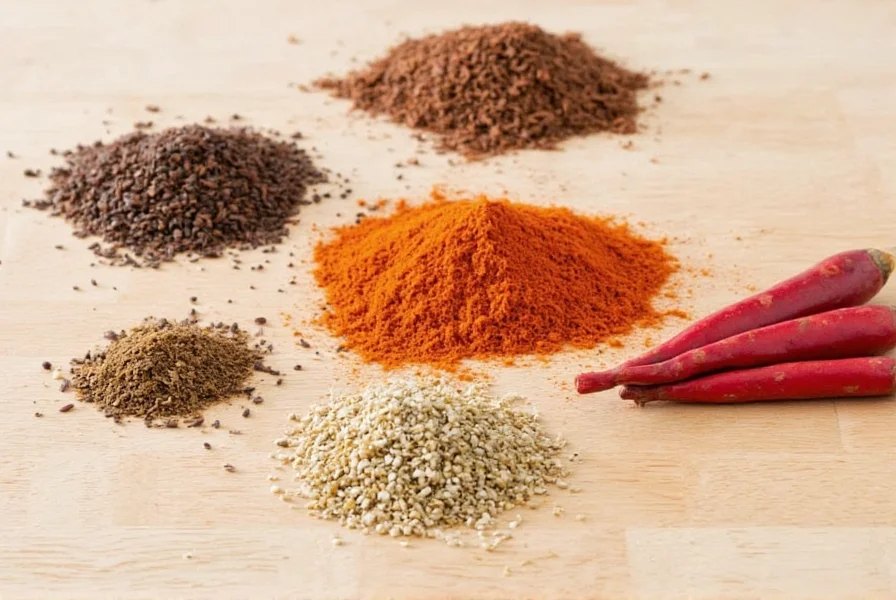









 浙公网安备
33010002000092号
浙公网安备
33010002000092号 浙B2-20120091-4
浙B2-20120091-4